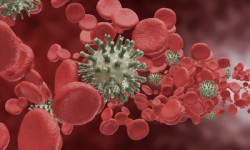
While our Issels® center has been using immunotherapy to treat cancer for years, the term has come into mainstream use fairly recently. How much do you understand about this cutting-edge treatment and the science behind it? Here’s a helpful look at the definition of immunotherapy along with how and why it works.
What is immunotherapy?
Immunotherapy is simply summed up by its name: it involves cancer treatment by way of stimulating your body’s own immune system to fight the tumors. This can be done with methods that directly target the system, or via man-made substances that supplement the system’s natural tools.
How your immune system works
When bacteria and other foreign cells enter your body, it triggers a response from your immune system, which begins producing substances to fight the invading cells. This reaction can be seen in a number of symptoms, from the redness of a sore throat to the blemishes of acne.
Unfortunately, cancer cells have ways to “trick” the immune system. One is by creating cells that aren’t different enough from normal cells to be recognized as foreign. Another is by producing alternative substances that neutralize the immune response. Immunotherapy for cancer is designed to help your immune system target these cells and giving it sufficient strength to fight them.
Fighting cancer with non-toxic immunotherapy
Vaccines and Cell Therapies prepared from the patient’s own immune cells are just two of the non-toxic immunotherapy approaches available at Issels®. Visit our website for more information about our center, along with testimonials from the many patients we have successfully treated.


